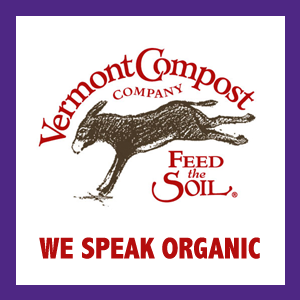In any cropping operation, you're going to put a lot of energy into weeds - it's your choice if you want to put that energy into preventing them, controlling them, or dealing with them.
Preventing
Prevention takes two forms: an ongoing reduction of the numbers of weed seeds in the soil over a number of years, and the use of crop rotations to set following crops up for success.
If one year's seeding is seven years' weeding, then keeping weeds from going to seed is perhaps the most fundamental principle of weed prevention.
The creative and judicious use of crop rotations can also work to prevent weeds. At Pennsylvania’s Beech Grove Farm, Anne and Eric Nordell combine shallow tillage with the following crop rotation in a technique they call Weed the Soil, Not the Crop. Complete details of their process can be found in their book.
Year 1: Late-planted cash crop
Year 2: Fallow and cover crops to winterkill
Year 3: Early-planted cash crop
Year 4: Fallow and cover crops to overwinter
At Illinois’ Angelic Organics, Farmer John Peterson emphasizes weed prevention using the following four-year rotation:
Year 1 and Year 2: Perennial cover crop
Year 3: Early-season vegetables followed by winterkilled cover crop
Year 4: Hard-to-weed vegetables
On both farms, fertility is applied to the cover crops, and work is done to prepare the soil for the following year, reducing demands on spring tillage work and labor.
If one year's seeding is seven years' weeding, then keeping weeds from going to seed is perhaps the most fundamental principle of weed prevention.
The creative and judicious use of crop rotations can also work to prevent weeds. At Pennsylvania’s Beech Grove Farm, Anne and Eric Nordell combine shallow tillage with the following crop rotation in a technique they call Weed the Soil, Not the Crop. Complete details of their process can be found in their book.
Year 1: Late-planted cash crop
Year 2: Fallow and cover crops to winterkill
Year 3: Early-planted cash crop
Year 4: Fallow and cover crops to overwinter
At Illinois’ Angelic Organics, Farmer John Peterson emphasizes weed prevention using the following four-year rotation:
Year 1 and Year 2: Perennial cover crop
Year 3: Early-season vegetables followed by winterkilled cover crop
Year 4: Hard-to-weed vegetables
On both farms, fertility is applied to the cover crops, and work is done to prepare the soil for the following year, reducing demands on spring tillage work and labor.
Controlling
Control depends on the right operation of the right tools.
It's easy to invest in weed control tools- it just takes money. It's a lot harder to invest in the will and the systems to use those tools effectively. Invest in basic, versatile tools for weed control - sweeps and knives for the tractor, stirrups for the wheel hoe - then work to get the weed control systems working right before you invest in fancier tools.
Weed control tools must be applied early, often, and well.
Early: The right time to kill weeds is before you can even see them. It takes serious monitoring and awareness to target weeds before they break through the surface, but hoeing or cultivating weeds in the white thread stage hits them at the weakest link in their lifecycle. Every day after they break through the soil surface makes them a little bit stronger.
Often: There is not a magical number of cultivations that constitutes sufficient weed control. You're done controlling weeds when you're done controlling weeds, not after three wheel-hoeings or two hillings. And count on hand-weeding - even with great weed control, a few hardy specimens are likely to slip through.
Well: Time spent adjusting cultivators is an investment, not an expense. Time spent setting things up right ensures that you maximize returns on time you spend driving through the fields. If you farm anywhere other than the desert, you never know when you'll get another chance to kill weeds, so kill every single one you possibly can each time you hit the field with a cultivator, flamer, or hoe.
It's easy to invest in weed control tools- it just takes money. It's a lot harder to invest in the will and the systems to use those tools effectively. Invest in basic, versatile tools for weed control - sweeps and knives for the tractor, stirrups for the wheel hoe - then work to get the weed control systems working right before you invest in fancier tools.
Weed control tools must be applied early, often, and well.
Early: The right time to kill weeds is before you can even see them. It takes serious monitoring and awareness to target weeds before they break through the surface, but hoeing or cultivating weeds in the white thread stage hits them at the weakest link in their lifecycle. Every day after they break through the soil surface makes them a little bit stronger.
Often: There is not a magical number of cultivations that constitutes sufficient weed control. You're done controlling weeds when you're done controlling weeds, not after three wheel-hoeings or two hillings. And count on hand-weeding - even with great weed control, a few hardy specimens are likely to slip through.
Well: Time spent adjusting cultivators is an investment, not an expense. Time spent setting things up right ensures that you maximize returns on time you spend driving through the fields. If you farm anywhere other than the desert, you never know when you'll get another chance to kill weeds, so kill every single one you possibly can each time you hit the field with a cultivator, flamer, or hoe.
Dealing
Dealing with weeds is just depressing.
Weeds compete with plants for sunshine, water, and nutrients, reducing your yields. They reduce the airflow around the plants, increasing drying time and allowing fungi to propagate and bacteria to multiply.
Plus, harvesting in weeds takes more time than harvesting in clean fields - and can keep mechanized harvesters from working at all. More time harvesting means more expense, lost opportunities, and lower quality as it takes longer to move crops to the cooler.
I've picked my share of beans in pollinating ragweed, and pulled my share of weeds out of salad greens. And I must say, preventing and controlling weeds is easier on the spirit, not to mention easier on the bottom line.
Weeds compete with plants for sunshine, water, and nutrients, reducing your yields. They reduce the airflow around the plants, increasing drying time and allowing fungi to propagate and bacteria to multiply.
Plus, harvesting in weeds takes more time than harvesting in clean fields - and can keep mechanized harvesters from working at all. More time harvesting means more expense, lost opportunities, and lower quality as it takes longer to move crops to the cooler.
I've picked my share of beans in pollinating ragweed, and pulled my share of weeds out of salad greens. And I must say, preventing and controlling weeds is easier on the spirit, not to mention easier on the bottom line.




 RSS Feed
RSS Feed
